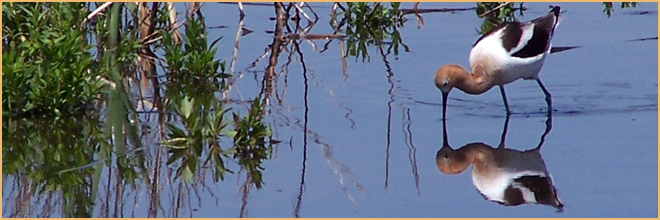Wildlife Without Borders-Amphibians in Decline
The Wildlife Without Borders-Amphibians in Decline program will fund projects that conserve the worlds rapidly declining amphibian species.
Species eligible for funding are those frogs, toads, salamanders, newts, and caecilians that currently face a very high risk of extinction.
Species should meet the criteria to be listed as Critically Endangered or Endangered on the International Union for the Conservation of Nature (IUCN) Red List.
Species listed as Data Deficient on the IUCN Red List are also eligible if the applicant can provide information that suggests a similar urgency for conservation action.
Species listed as Extinct in Wild are eligible if the applicant is proposing a reintroduction attempt.
The goal of this grants program is to reduce threats to highly endangered amphibians in their natural habitat.
Proposals should identify specific conservation actions that have a high likelihood of creating durable benefits.
Project activities that emphasize data collection and status assessment should describe a direct link to management action, and explain how lack of information has been a key limiting factor for management action in the past.
Proposals that do not identify how actions will reduce threats, or do not demonstrate a strong link between data collection and management action, are not eligible for consideration.
To the extent that the proposed work provides clear, direct support for the program objectives above, proposals may also relate to climate change adaptation, mitigation, and education.
Although projects addressing all threats (e.g., disease, habitat loss and degradation) to amphibians are eligible, proposals have a higher likelihood of being selected that advance one or more of the strategic priorities of the United States National Strategy for Combating Wildlife Trafficking, including:
(1) Strengthening efforts to stop illegal trade in wildlife and to enforce laws prohibiting wildlife trafficking; (2) Reducing demand for illegally traded wildlife by dissuading consumers from purchasing illegally traded wildlife; and (3) Expanding government and civil support for, and encouraging new partnerships in, the fight against wildlife trafficking.
Proposed project work should occur within the species range, or, if work is to be conducted outside of the range, the proposal should show a clear relevance to its conservation.
Proposals that emphasize ex-situ conservation and captive management are not eligible for consideration.
Species eligible for funding are those frogs, toads, salamanders, newts, and caecilians that currently face a very high risk of extinction.
Species should meet the criteria to be listed as Critically Endangered or Endangered on the International Union for the Conservation of Nature (IUCN) Red List.
Species listed as Data Deficient on the IUCN Red List are also eligible if the applicant can provide information that suggests a similar urgency for conservation action.
Species listed as Extinct in Wild are eligible if the applicant is proposing a reintroduction attempt.
The goal of this grants program is to reduce threats to highly endangered amphibians in their natural habitat.
Proposals should identify specific conservation actions that have a high likelihood of creating durable benefits.
Project activities that emphasize data collection and status assessment should describe a direct link to management action, and explain how lack of information has been a key limiting factor for management action in the past.
Proposals that do not identify how actions will reduce threats, or do not demonstrate a strong link between data collection and management action, are not eligible for consideration.
To the extent that the proposed work provides clear, direct support for the program objectives above, proposals may also relate to climate change adaptation, mitigation, and education.
Although projects addressing all threats (e.g., disease, habitat loss and degradation) to amphibians are eligible, proposals have a higher likelihood of being selected that advance one or more of the strategic priorities of the United States National Strategy for Combating Wildlife Trafficking, including:
(1) Strengthening efforts to stop illegal trade in wildlife and to enforce laws prohibiting wildlife trafficking; (2) Reducing demand for illegally traded wildlife by dissuading consumers from purchasing illegally traded wildlife; and (3) Expanding government and civil support for, and encouraging new partnerships in, the fight against wildlife trafficking.
Proposed project work should occur within the species range, or, if work is to be conducted outside of the range, the proposal should show a clear relevance to its conservation.
Proposals that emphasize ex-situ conservation and captive management are not eligible for consideration.
Relevant Nonprofit Program Categories
Obtain Full Opportunity Text:
How to Apply
Additional Information of Eligibility:
Applicants under this program can be individuals; multi-national secretariats, State and Local governments; U. S. and foreign non-profit, non-governmental, community and indigenous organizations; and U. S. and foreign public and private institutions of higher education.
Full Opportunity Web Address:
http://www.fws.gov/international/grants-and-reporting/how-to-apply.html
Contact:
Nikole Tucker, 703-358-2379WWB_AD@fws.gov
Agency Email Description:
Program Mailbox
Agency Email:
WWB_AD@fws.gov
Date Posted:
2015-04-17
Application Due Date:
2015-06-19
Archive Date:
2015-07-20
Social Entrepreneurship
Spotlight
When it Comes to Social Enterprises, Failure is the Best Platform for Innovation

In the world of social enterprises, failure is a cringe-worthy moment nobody wants to talk about. But, social entrepreneurs can benefit from their failures.

